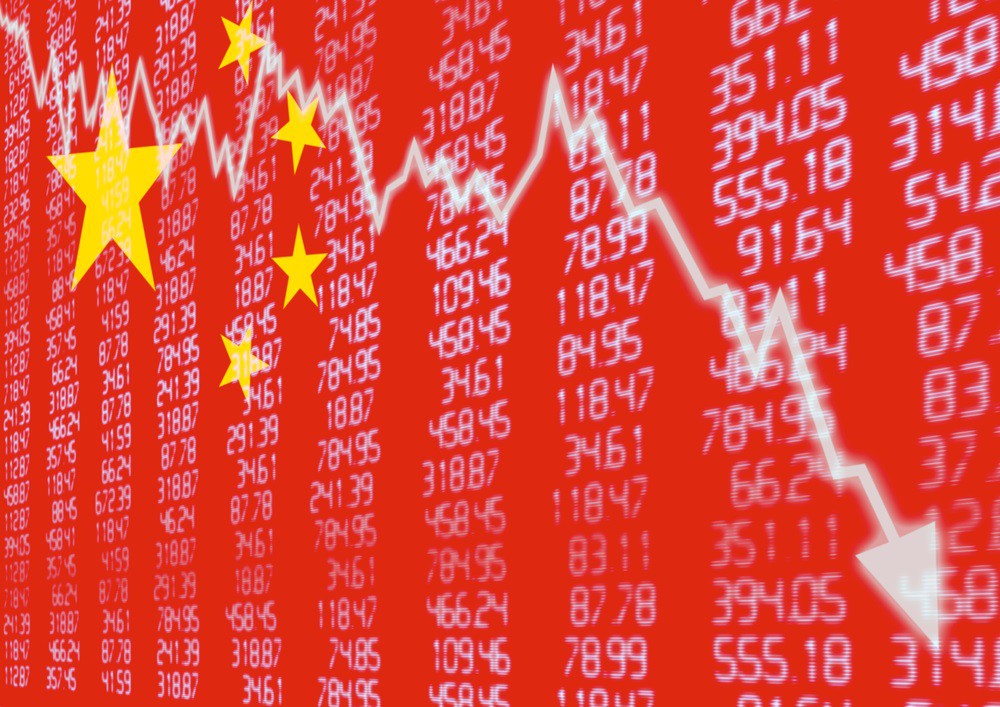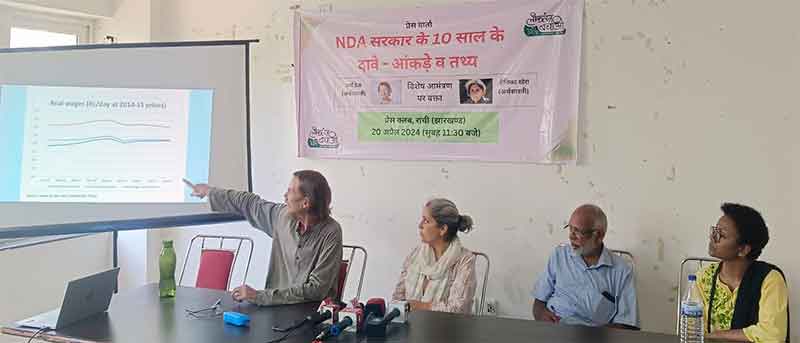
A snake will begin to consume itself under two circumstances – first, when mistakes its tail for prey, and second, when under conditions of extreme stress, it attempts reptilian suicide. The People’s Republic of China, that great repository of Maoist/Marxist ideology, is today consuming its ideological tail for both reasons.
Any discussion of modern-day China must begin with the question of whether it is a Communist nation; in turn, this question rests on how one defines communism. For Marx it was the Absolute Realization of human evolution; a classless society in which both the state, save for its distributive role,and money have disappeared. The boundless products ofa well-developed and mechanized production are distributed “from each according to his ability to each according to his need.”In this society each human being,free of the fetters of endless labor, of exploitation, and want. Having everything and needing nothing, surrounded by those who are like him and equal to him, he can focus on his realizing his human potential.
As a result of Marx’s dream of social and human self-realization, Communism, and its precursor, Socialism, has been conceived in several ways: as a centrally controlled economy in which the forces and means of production, the distribution of products of that production,and relations of production are controlled by the state ostensibly for the benefit of the whole. Communism is generally understood to imply a classless society and a welfare state. Defined from the negative perspective of the West, Communism is a system of “state totalitarianism” in which individuals, their needs, desires and aspirations, are sacrificed to the greater good of the whole.
The two great nations which have attempted to give birth to Marx’s vision of Communism were the USSR and the People’s Republic of China. Each did so to a greater or lesser degree at different times in their history, yet neither according to any or all the positive definitions offered above, have ever fully accomplished their aims. In fact, they have tended to function in the negative way that the West comes to equate with Communism. This is for two reasons. The first being that the Communist state which Marx envisioned could only evolve out of an advanced Capitalist mode of production i.e., an extremely well-developed economy with high levels of productivity in a society characterized by massive abundance. These conditions never existed in those countries in which “Communist” revolutions took place: not in Cuba, Russia, Vietnam, N. Korea, Laos, Cambodia, and not in China. They were all backward, feudal or semi feudal economies at the time of their revolutions.
When one appropriates the means, forces and products of production in a state which is not a fully developed Capitalistate one faces the fact that that state is unable to fulfill the needs of the people on the one hand andsurvive in a world still dominated by Capitalism on the other. These facts give rise to hunger and want amongst the people, and ultimately to their restless dissatisfaction and discontent, to endless “five year plans” , to “great leaps forward” geared towards increasing the productive power of the not yet capitalist forces of production, and to leaders such as Lenin, Mao, and Stalin who would do anything to raise the productive capacity of the state, including sacrificing the people themselves to build Communism.
Secondly, these states were born into a Capitalist world which attempted to destroy them by any means necessary from the first moments of their coming to be.
Primarily for these two reasons the “Communist” state eventually capitulates, as it did in Russia and as it did in China for very similar reasons and in similar ways. This capitulation took place in Russia, with the multi pronged direct support of the United States, under Yeltsin in the 1990s and also, at nearly the same time, in China under former Chinese President Deng Xiaoping, who ushered in a class society with these words: “Poverty is not socialism, socialism is to eradicate poverty; the egalitarian big pot is not socialism, to encourage some people, part of the region first get rich, through the first rich after the rich, and ultimately achieve common prosperity…” Thus, the China which had embraced rigid egalitarianism under Mao, reintroduced classes and economic inequality. Meanwhile in Russia, during Perestroika and its “shock therapy” economics, the emergence of “class society” occurred nearly instantaneously as the hated Oligarchs became ridiculously wealthy, while the vast masses sunk into fearsome poverty. But the Chinese people did not sink into poverty, in fact their economic circumstances improved as the nation became the productive powerhouse of the Capitalist world; and while in Russia, particularly under Putin, Communism and atheism were replaced by nationalism and a state religion heralded as the salvation of humanity’s morality, in China, Communism remained the official ideology of the state and atheism held sway.
Thus, China faces a great internal contradiction that threatens to tear it apart and Russia does not. China still retains both some elements and a modified communist ideology while it exhibits the hallmark of Capitalism, a class society in which workers are exploited by capitalists with state support.
From a very young age, students in China learn their Marx and Mao even as they live in a society in which even though the standard of living has improved greatly, workers are exploited by bosses. This has given rise to a vanguard which struggles in the interests of the workers, and to an ostensibly Marxist state which does not support the needs of workers and submit to the will of this Marxist vanguard, but begins to consume it’s tail, first perceived as its evil prey, and then, to rid itself of the stress it feels as a result of its internal conflict.
This summer, workers at the Jasic factory in China’s manufacturing center of Shenzhen tried to form a union to improve their salaries and working conditions. The government did not support their efforts but rather joined with the company to stifle their struggle. Their campaign became a national cause, and students and labor activists across the country flocked to Shenzhen to back their struggle. In true capitalist fashion, workers and activists were fired, detained, put under surveillance and finally, “disappeared.” In recent months at least 12 labor activists have gone missing. Others have been taken into detention. Even capitalist institutions such as Cornell University, protested the treatment of the student labor activists by ceasing cooperation with Renmin University after students were punished for supporting the workers.
These are the latest actions taken by the state against a small growing movement of students and activists who have said they are Marxist and so in keeping with Marxist theory feel compelled to fight for the rights of the workers. The ruling Communist Part of China, which likewise espouses Marxism, has turned upon them, which is to say upon its own people and its own ideology, and so begun to consume itself.
Mary Metzger is a 72 year old retired teacher who has lived in Moscow for the past ten years. She studied Women’s Studies under Barbara Eherenreich and Deidre English at S.U.N.Y. Old Westerbury. She did her graduate work at New York University under Bertell Ollman where she studied Marx, Hegel and the Dialectic. She went on to teach at Kean University, Rutgers University, N.Y.U., and most recenly, at The Moscow Institute of Physics and Technology where she taught the Philosophy of Science. Her particular area of interest is the dialectic of nature, and she is currently working on a history of the dialectic. She is the mother of three, the gradmother of five, and the great grandmother of 2.










































